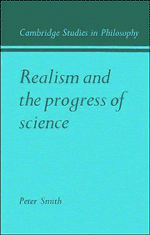2 - The scrutability of reference
Published online by Cambridge University Press: 07 October 2011
Summary
TWO DOCTRINES OF QUINE'S
Twenty years have passed since Quine's Word and Object was first published. In the now famous Chapter II, ‘Translation and Meaning’, it is argued that a certain systematic indeterminacy attaches to the enterprise of translation. As Quine (1970) has subsequently emphasized, however, there are two main strands of argument for this conclusion which need to be distinguished. The first, which constitutes ‘the real ground’ of the doctrine of the indeterminacy of translation of sentences, turns on the underdetermination of physical theory by all possible evidence. To use Quine's own metaphor, underdetermination maximizes the scope of the doctrine by ‘pressing from above’ (1970: 183). The second is that which he calls ‘the inscrutability of reference of terms’, and this is the strand which I shall be concentrating on in this chapter.
Despite his subsequent clarification, the relation of indeterminacy of translation to inscrutability of reference is not straightforward. On the one hand, inscrutability extends the scope of indeterminacy by ‘pressing from below’ (Quine 1970: 183); on the other, ‘the inscrutability of terms need not always bring indeterminacy of sentence translation in its train’ (1970: 182). Apparently, then, inscrutability does not imply indeterminacy. For convenience, let us express this by:
(i) Ins ↛ Ind
Let us now assume, for the sake of simplicity, that inscrutability can be treated as the negation of scrutability, and indeterminacy as the negation of determinacy.
- Type
- Chapter
- Information
- Realism and the Progress of Science , pp. 18 - 45Publisher: Cambridge University PressPrint publication year: 1981



